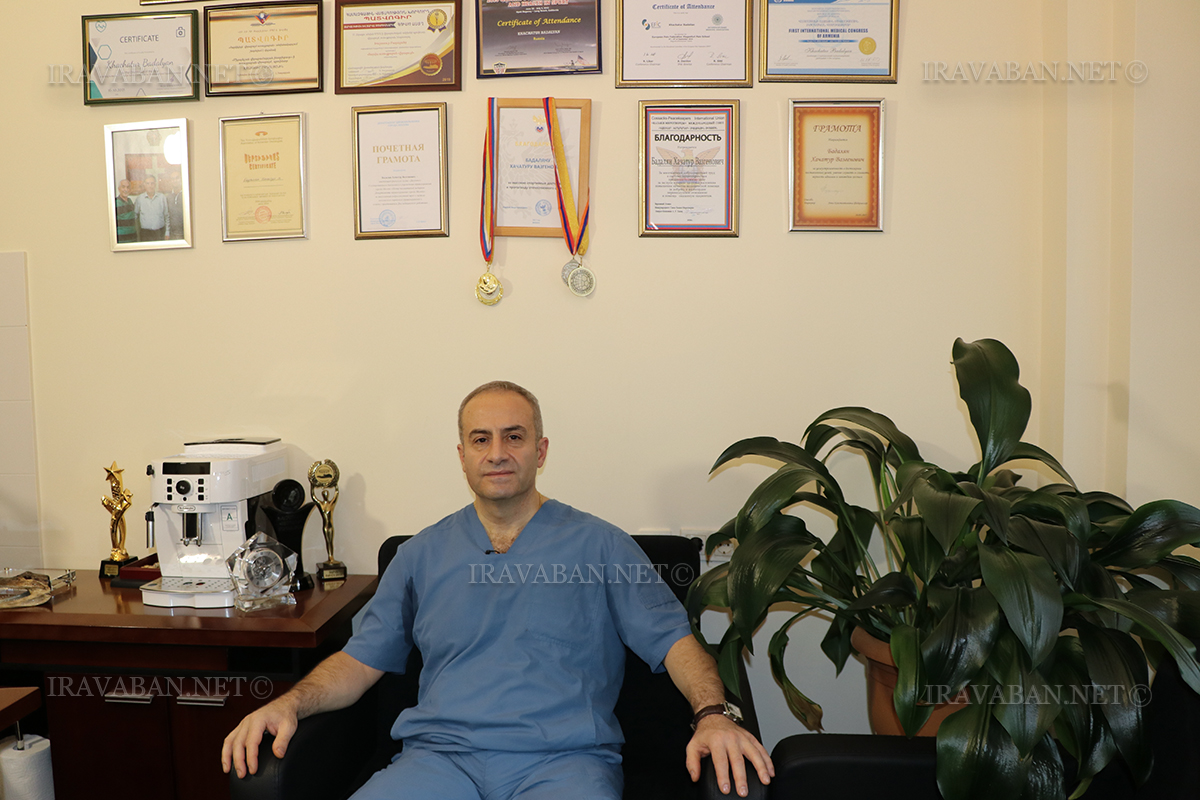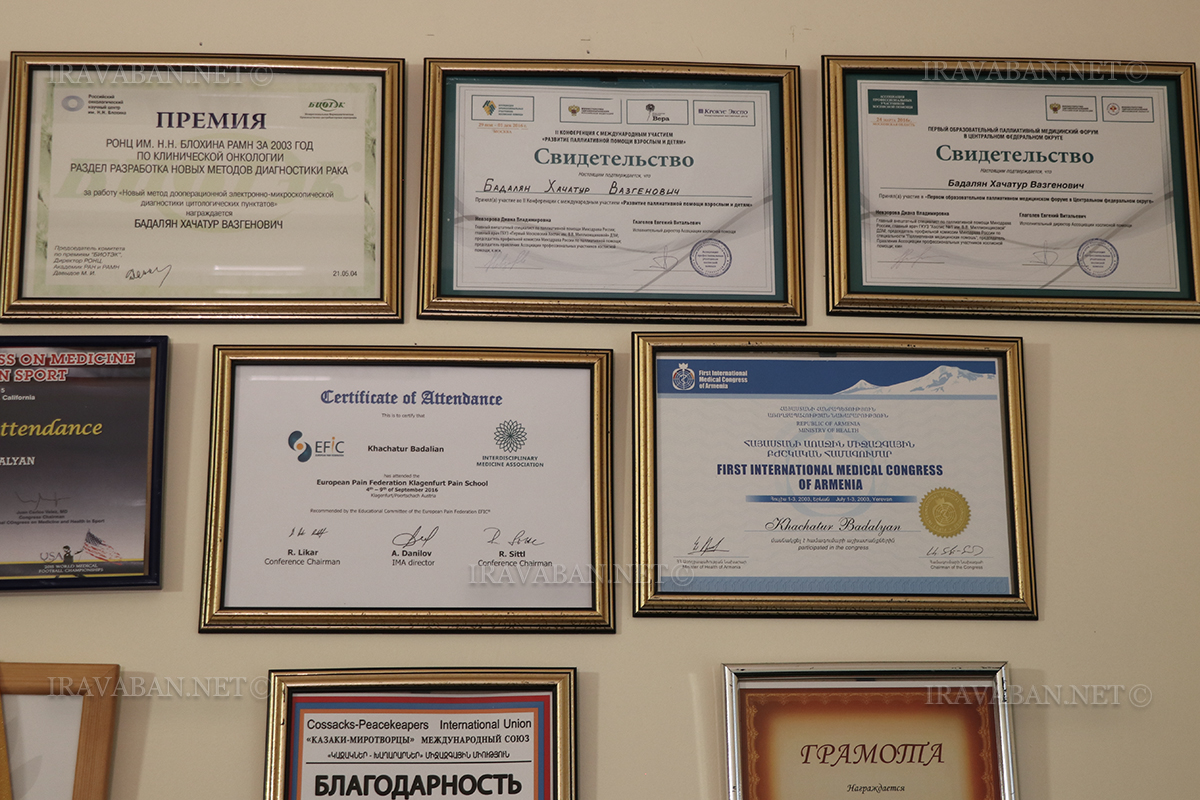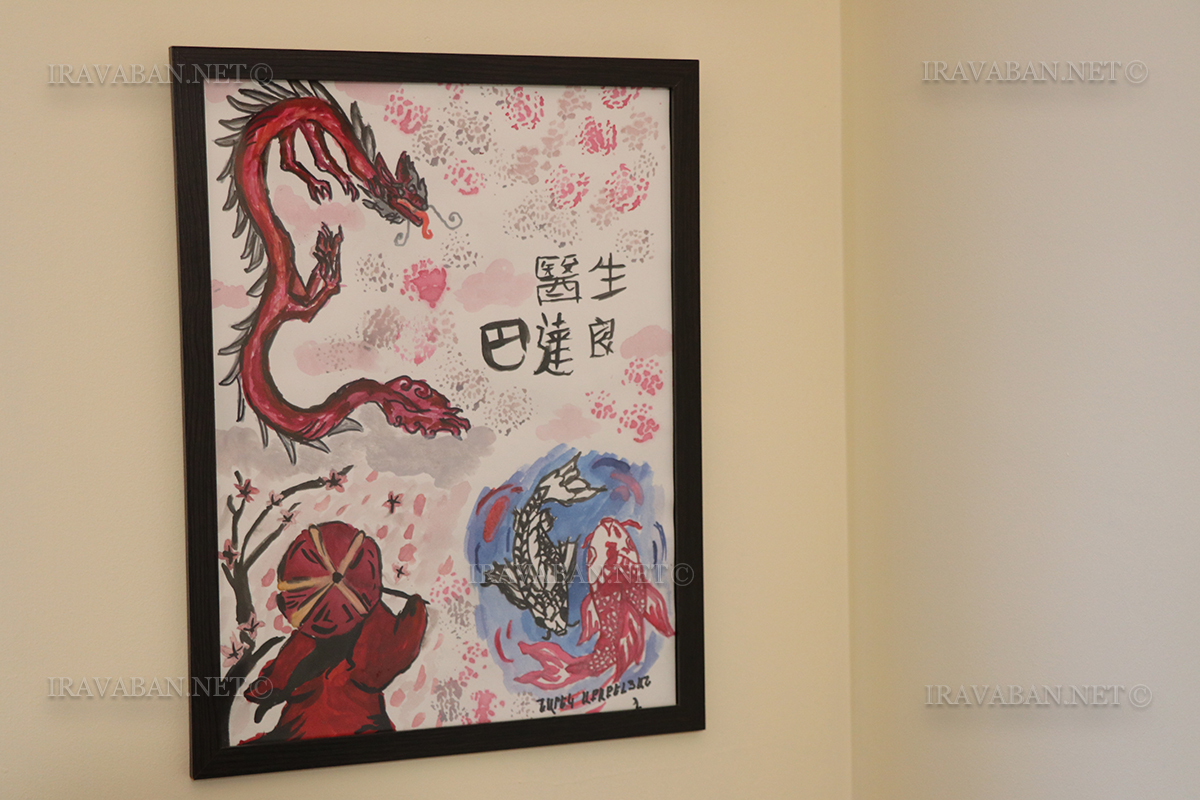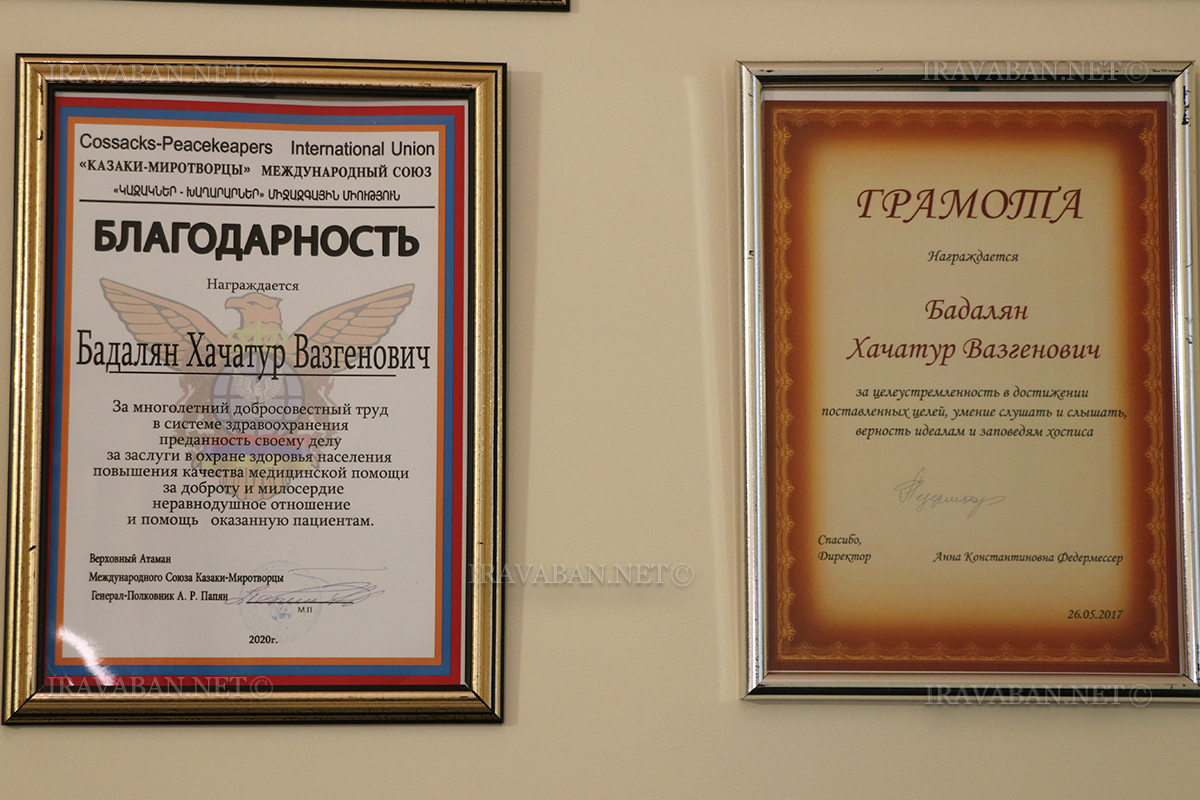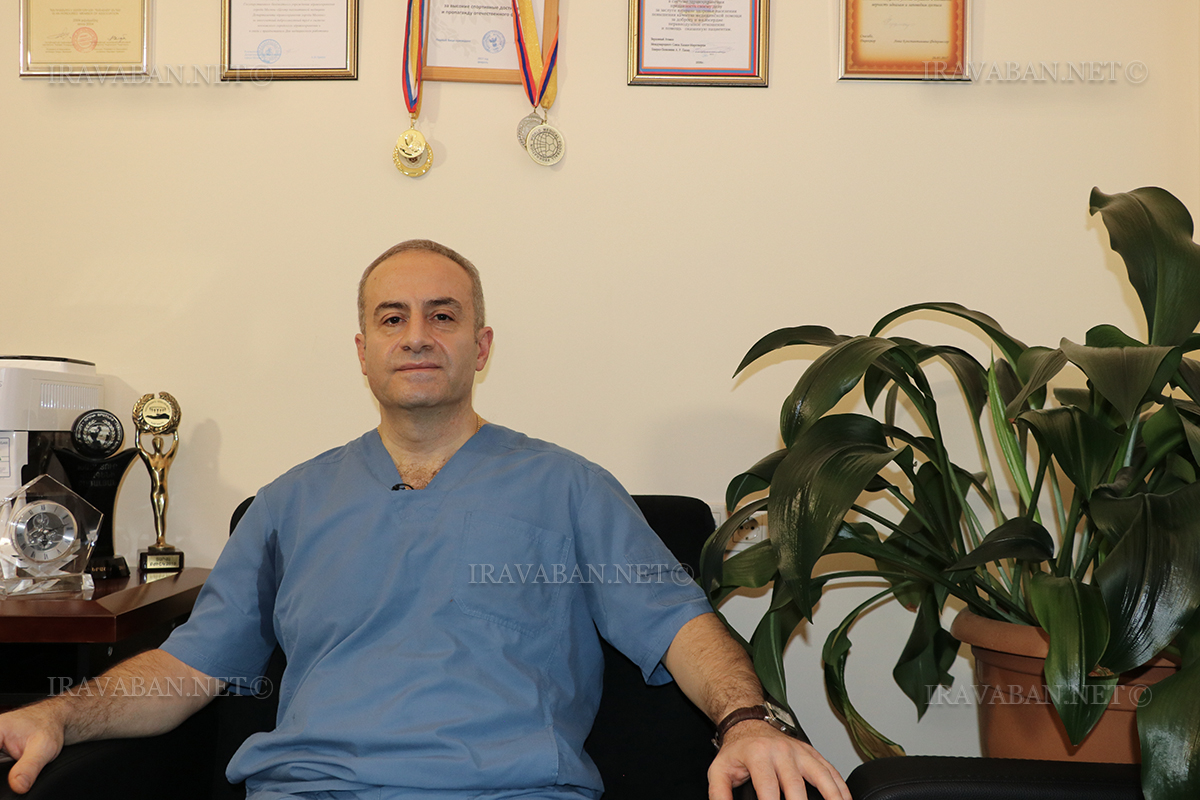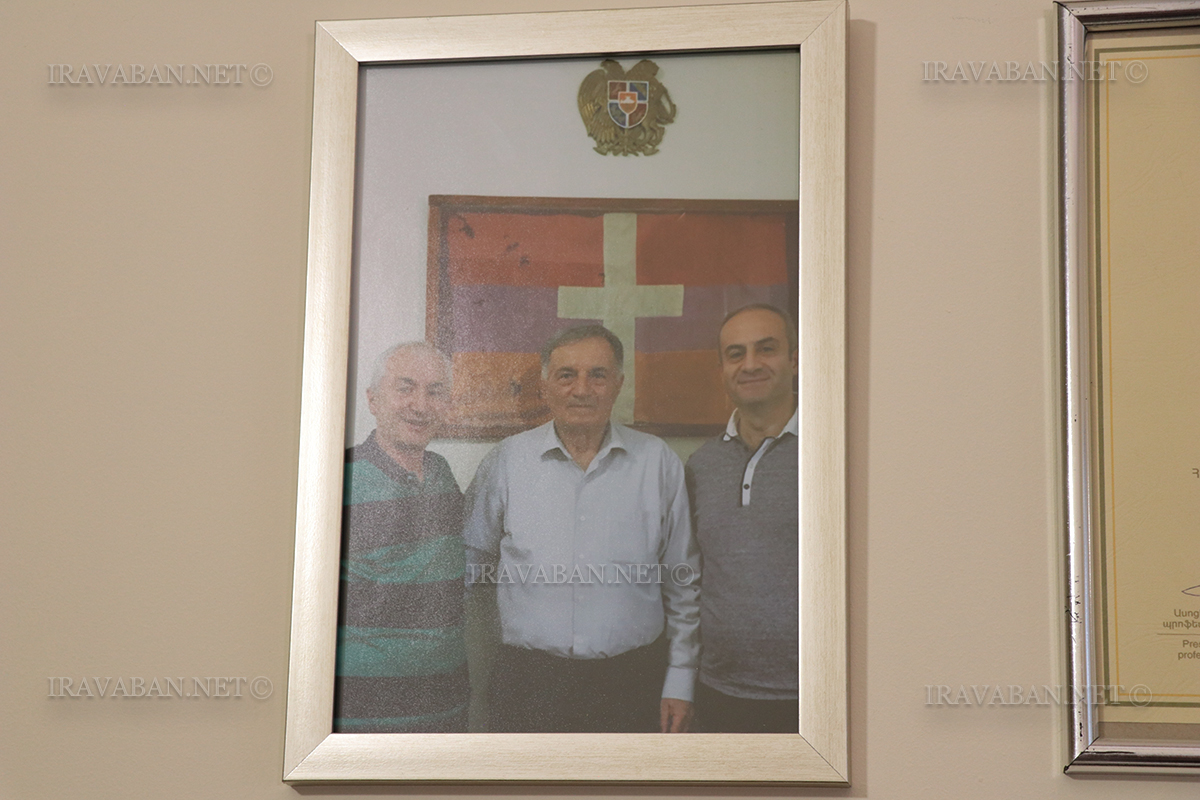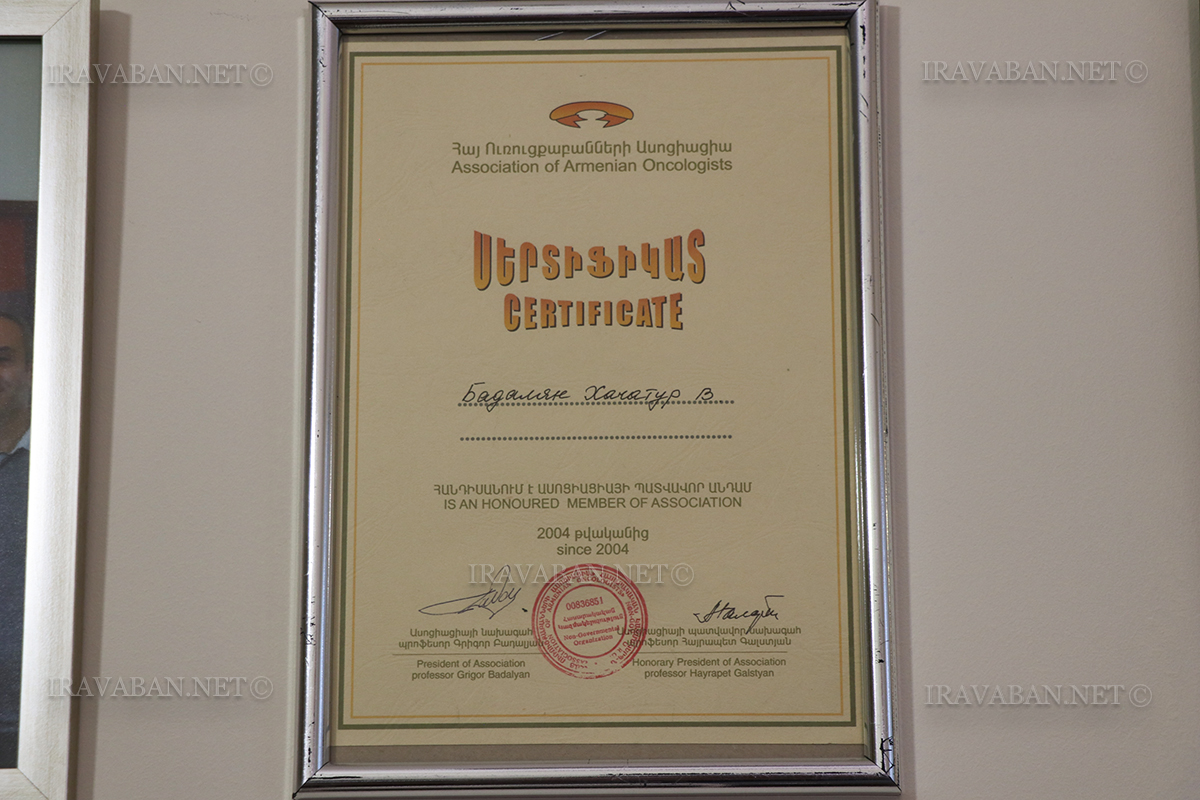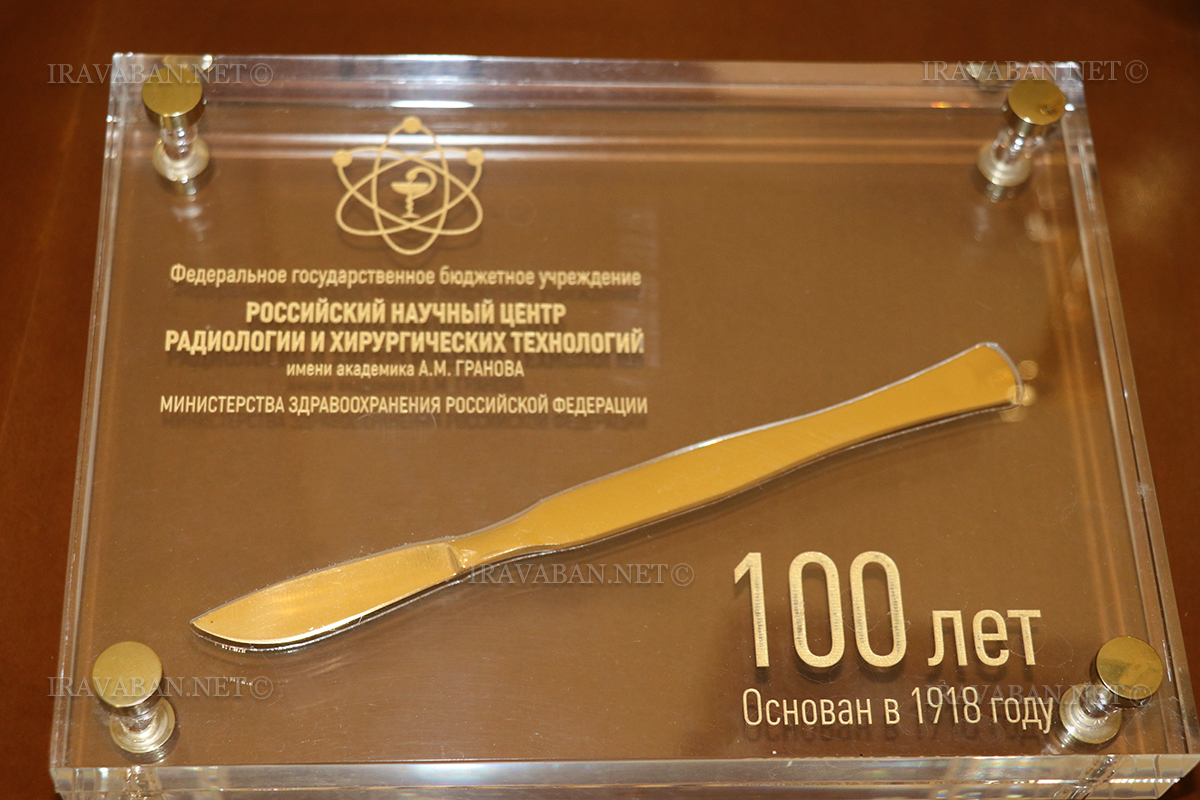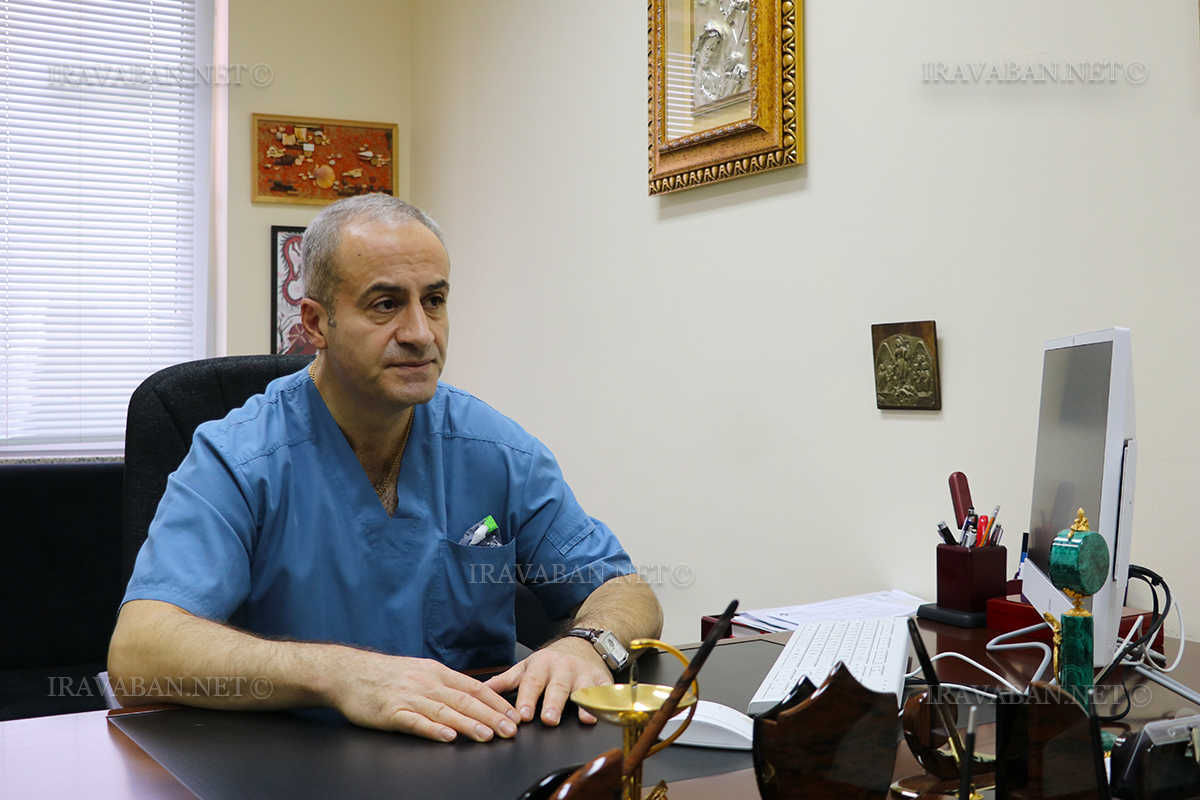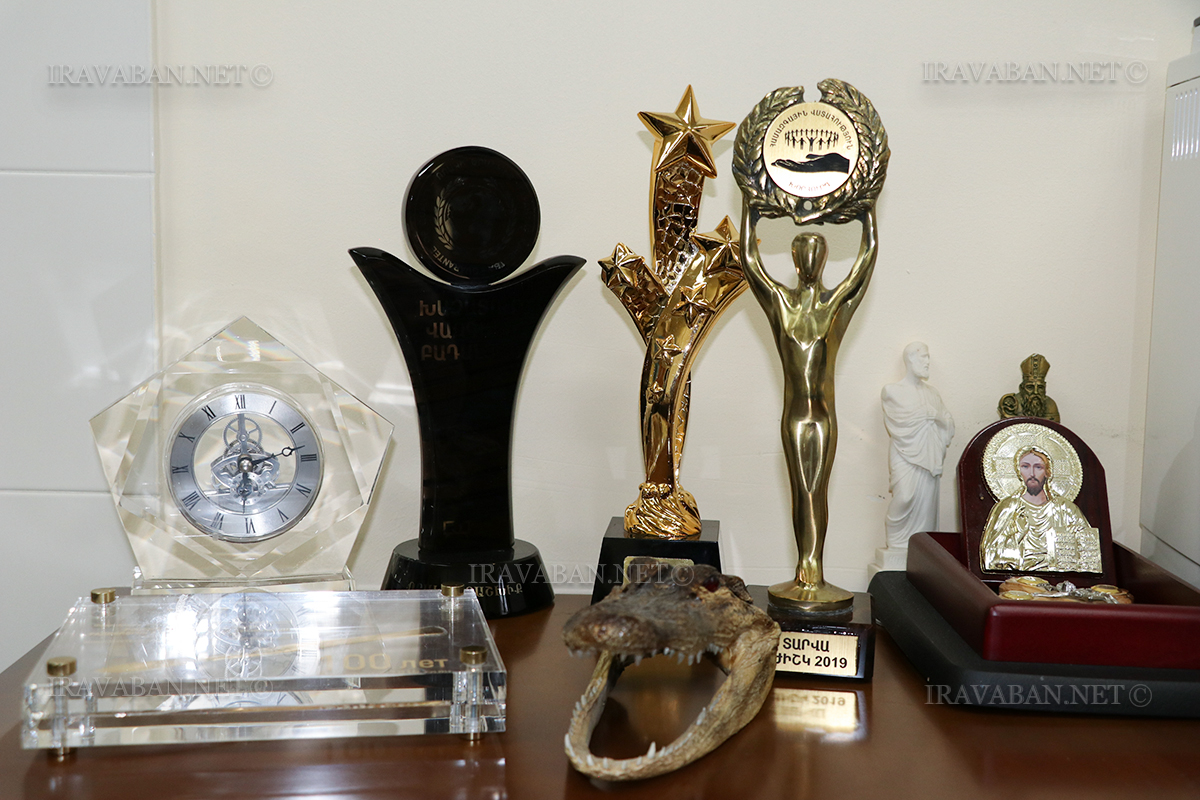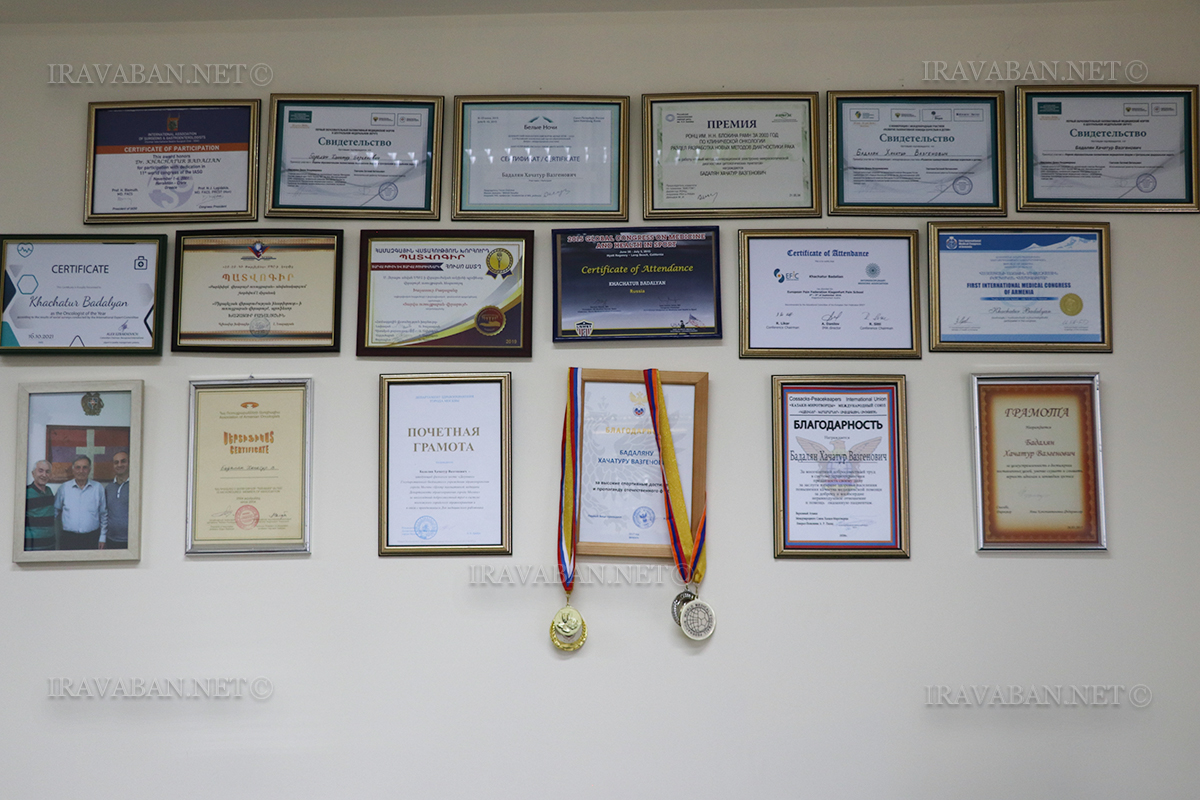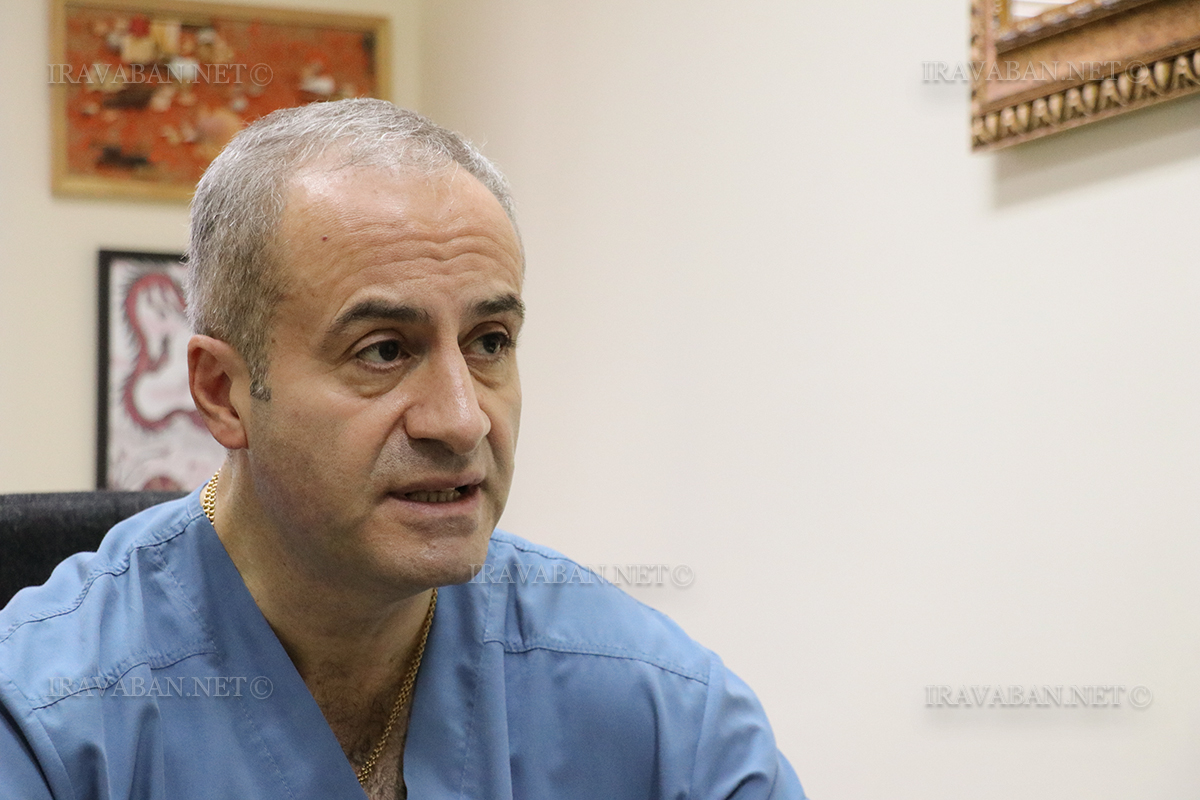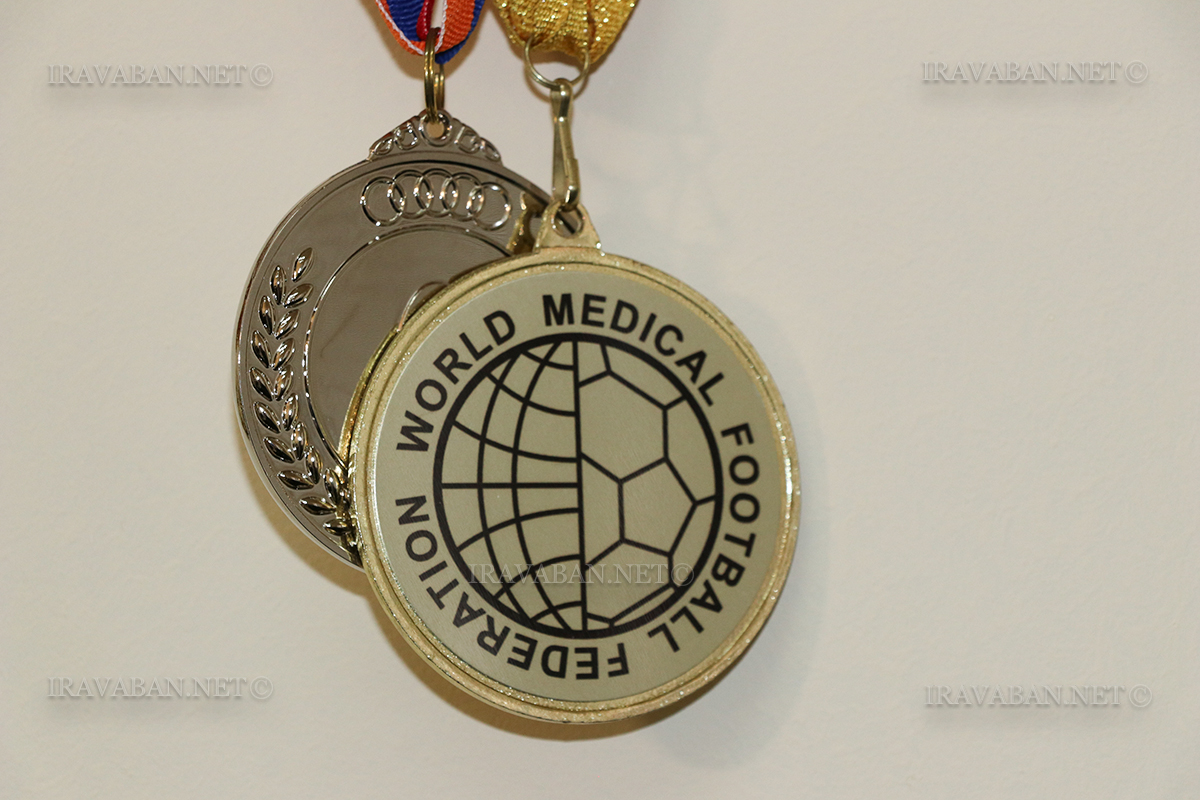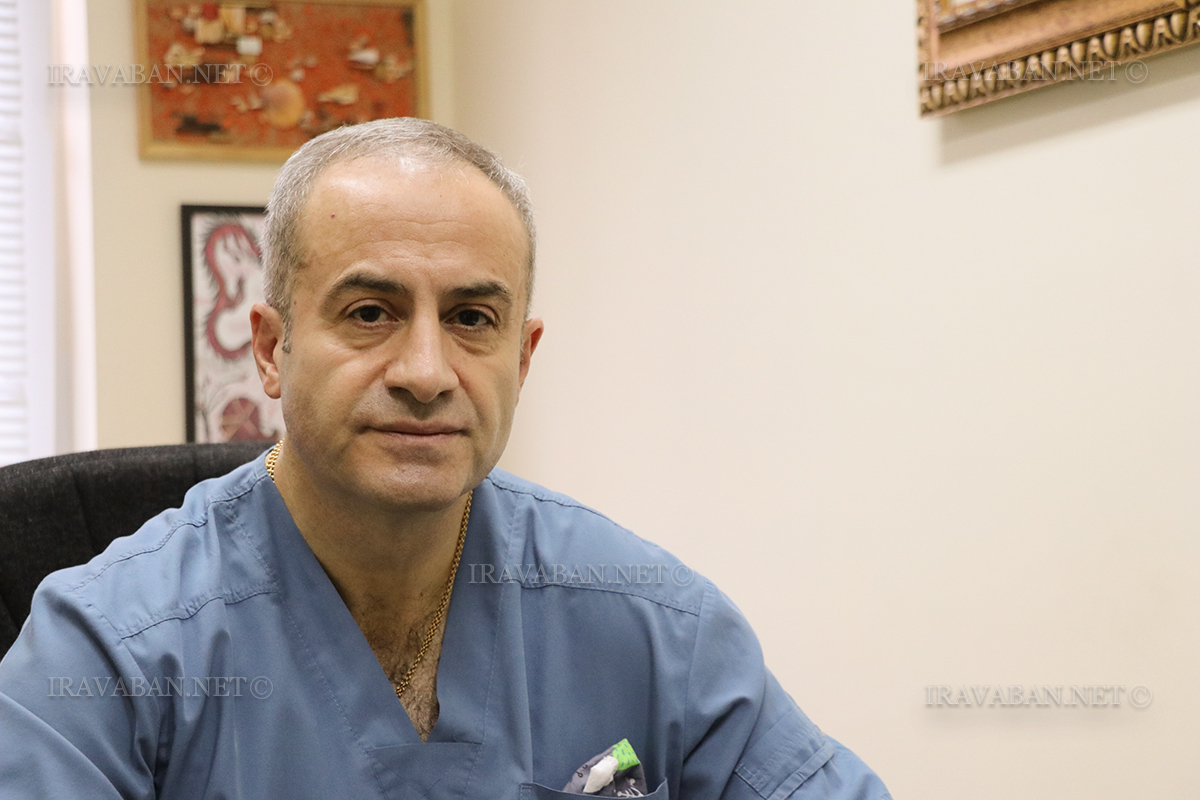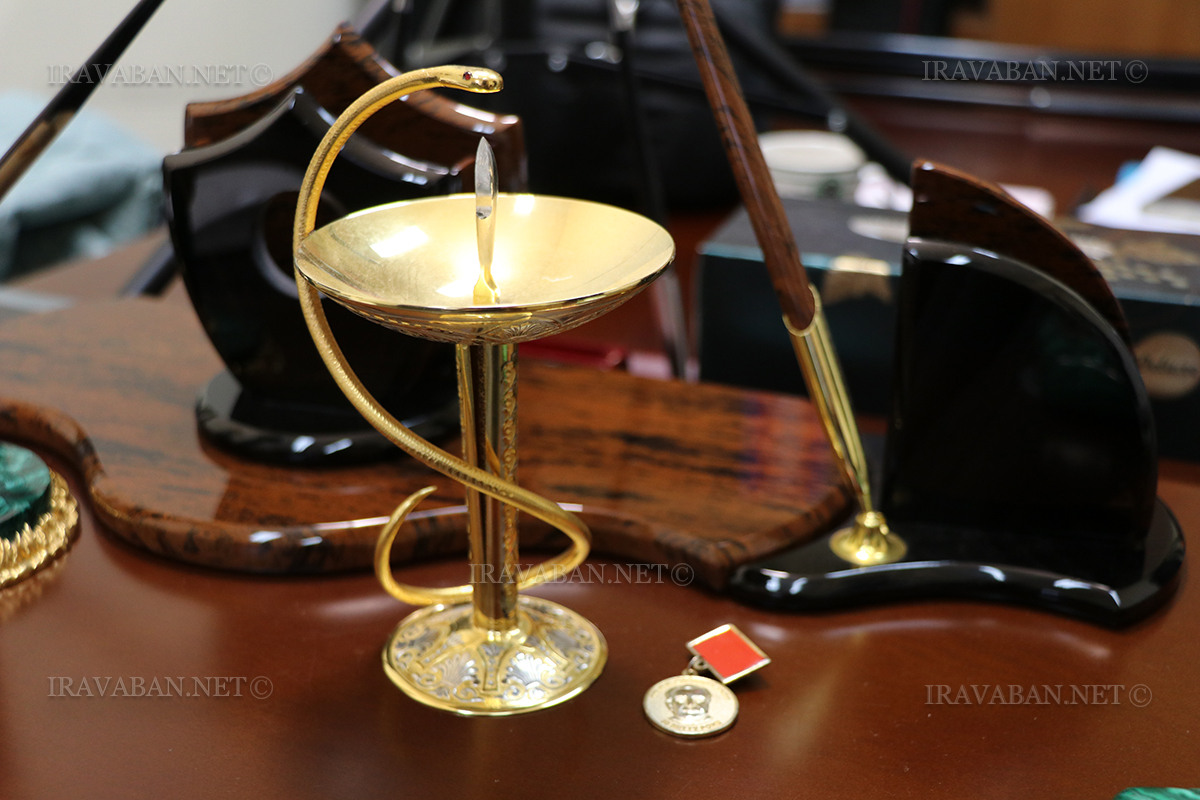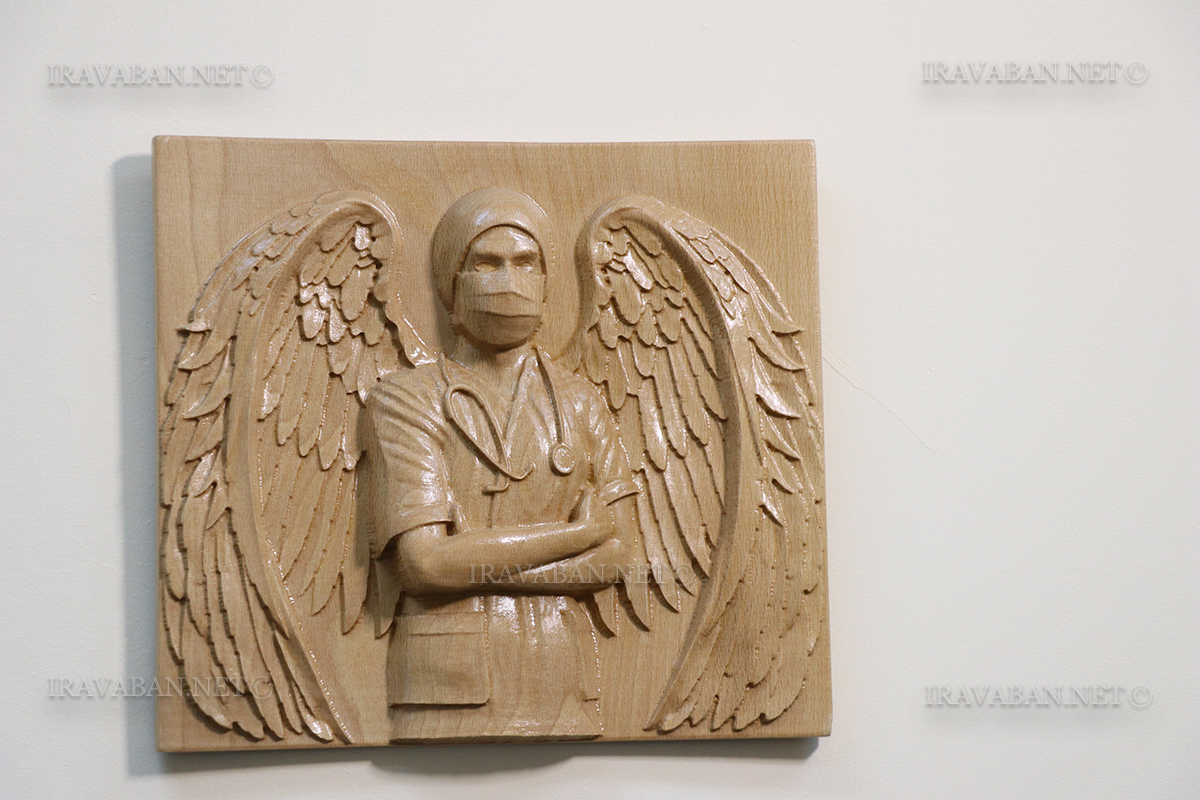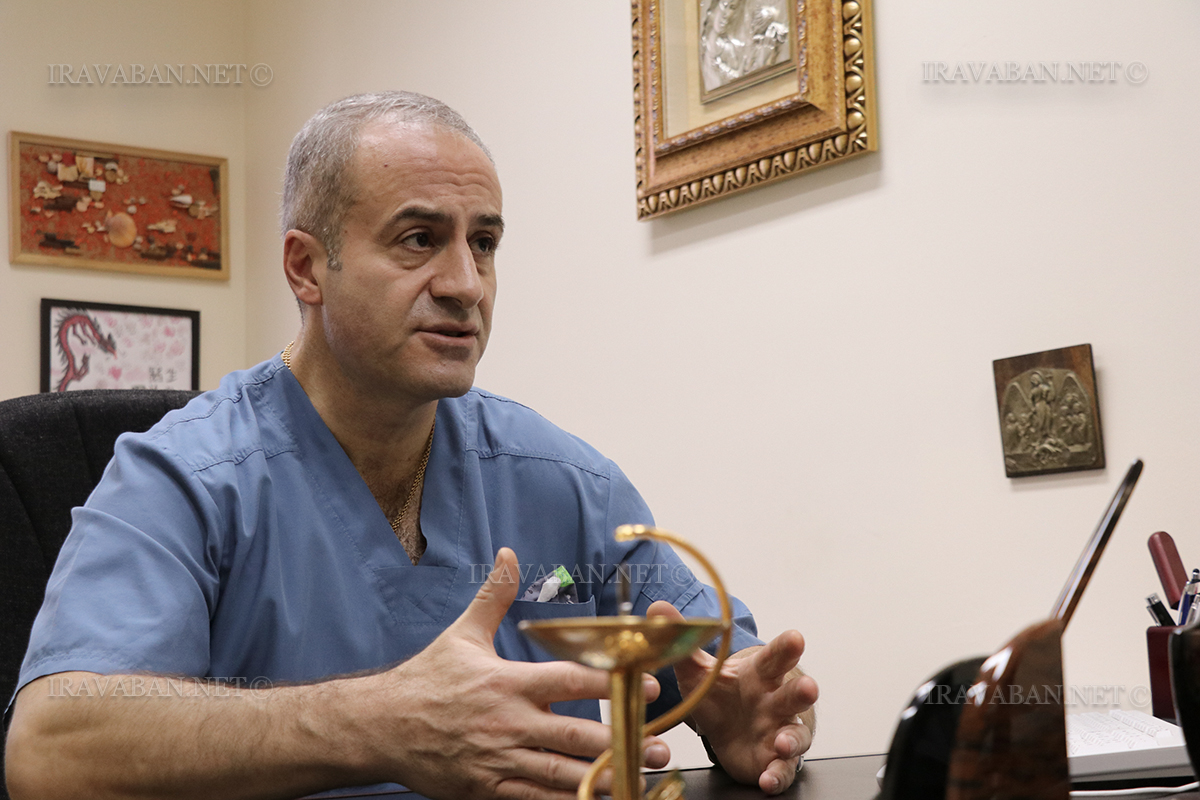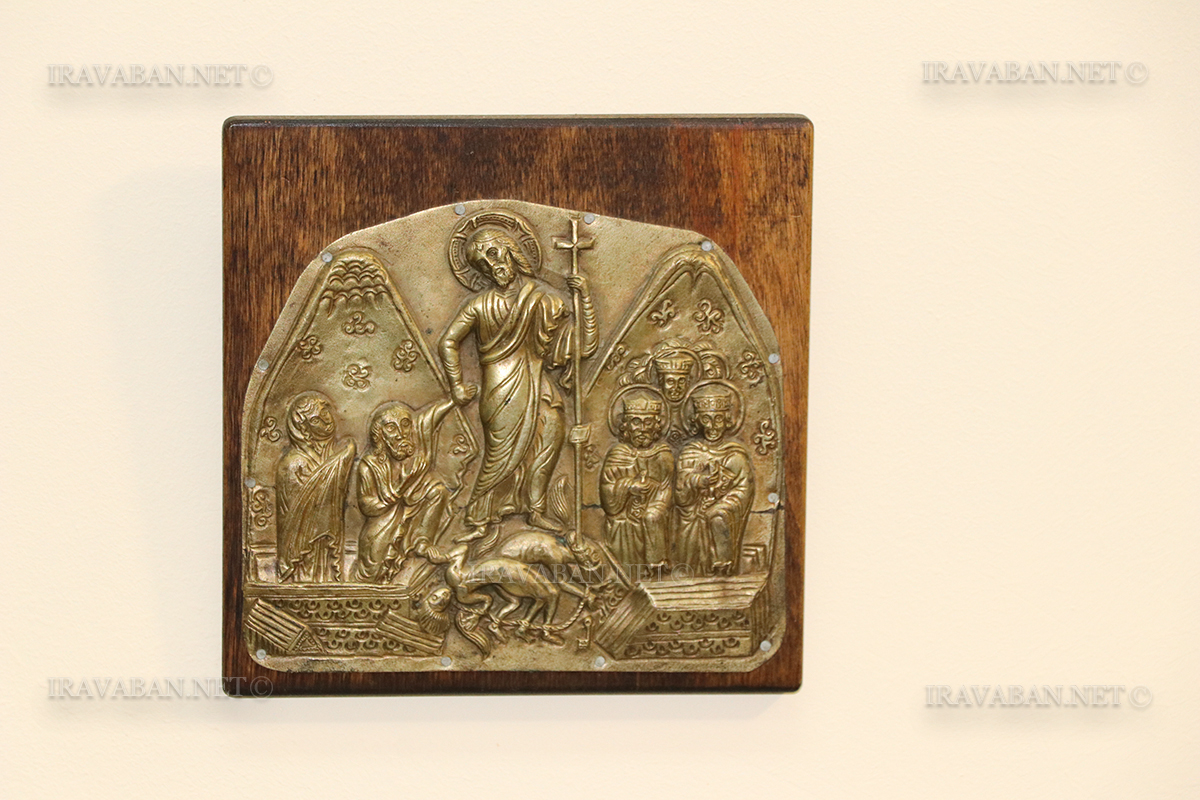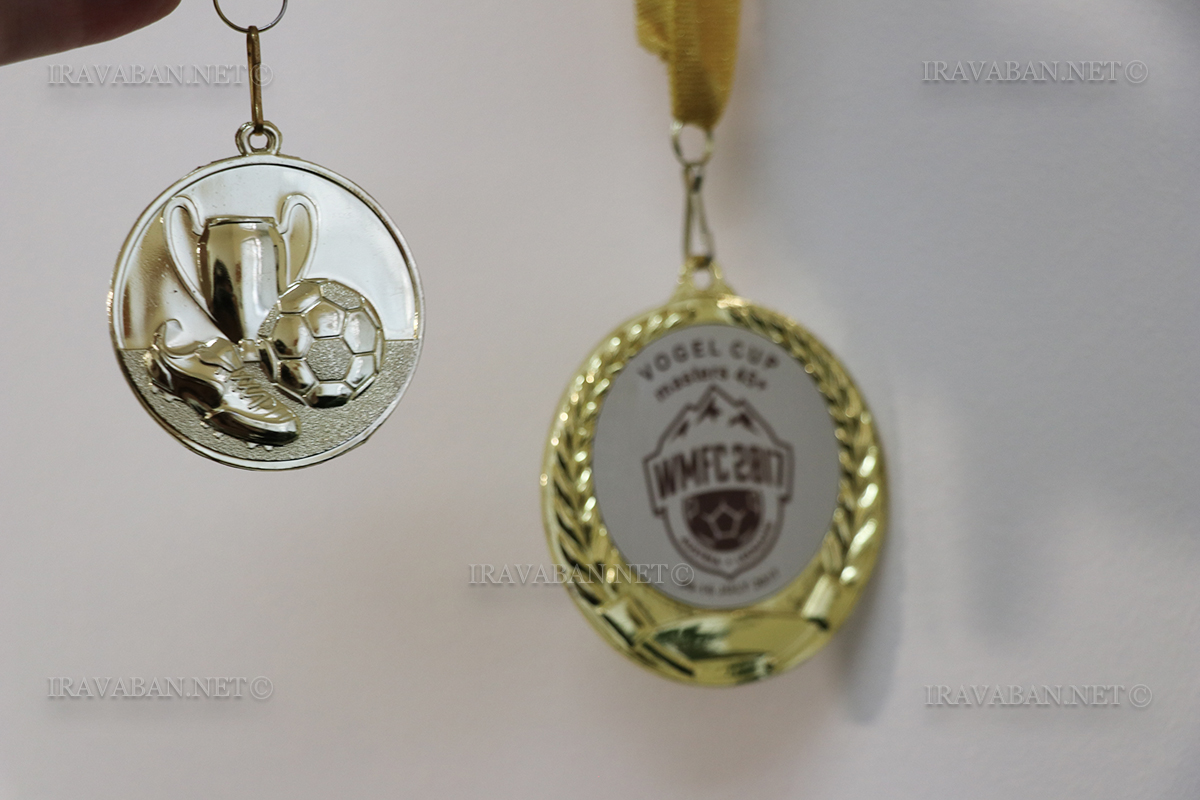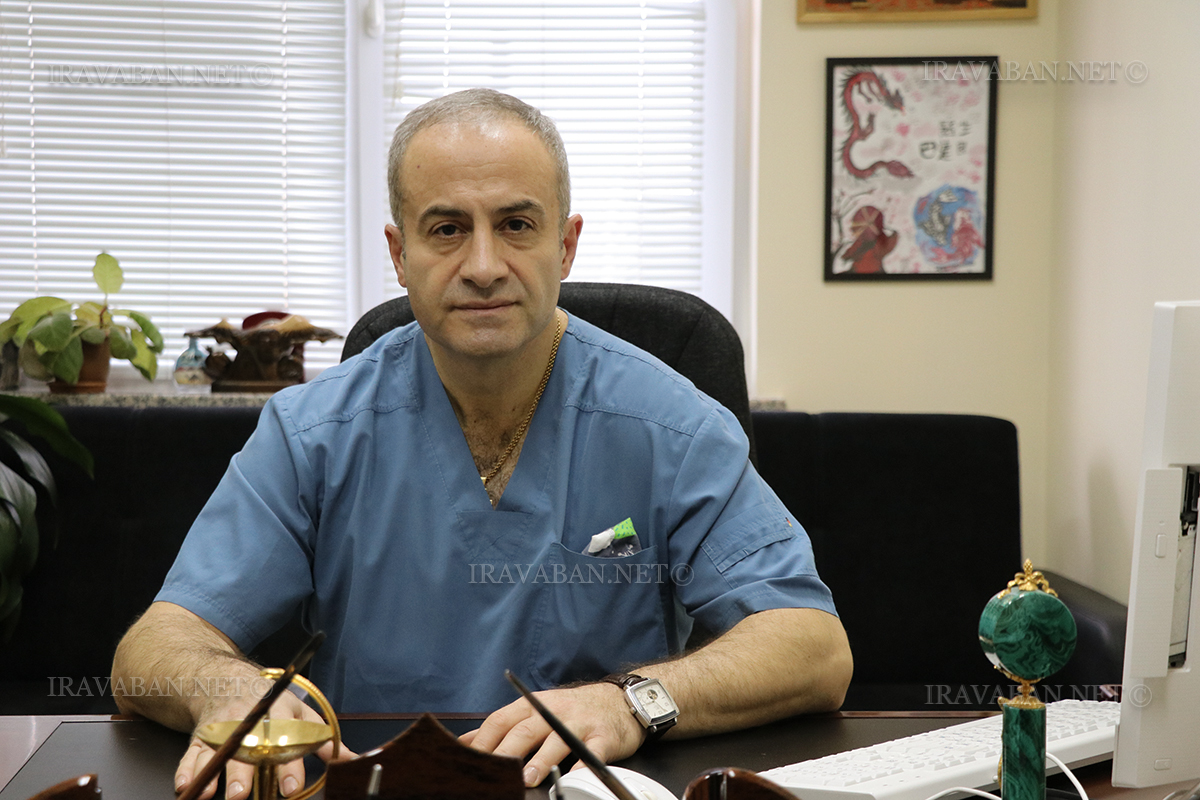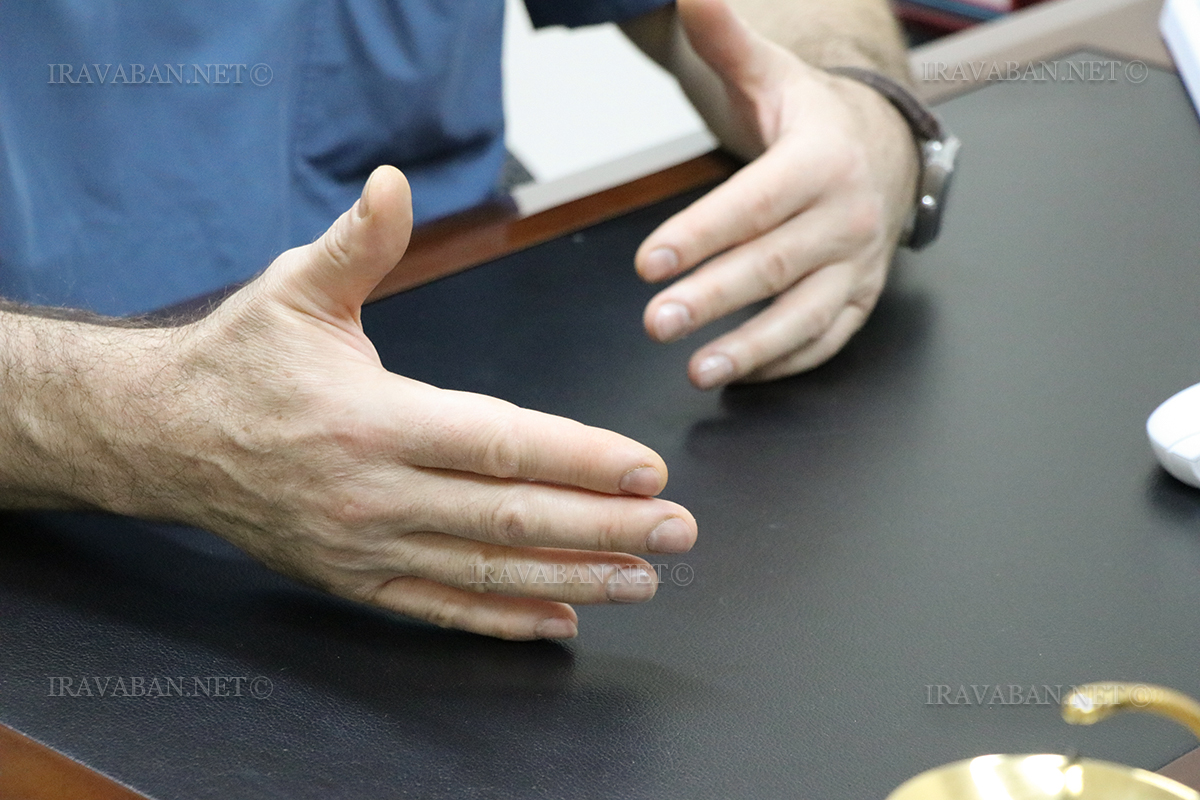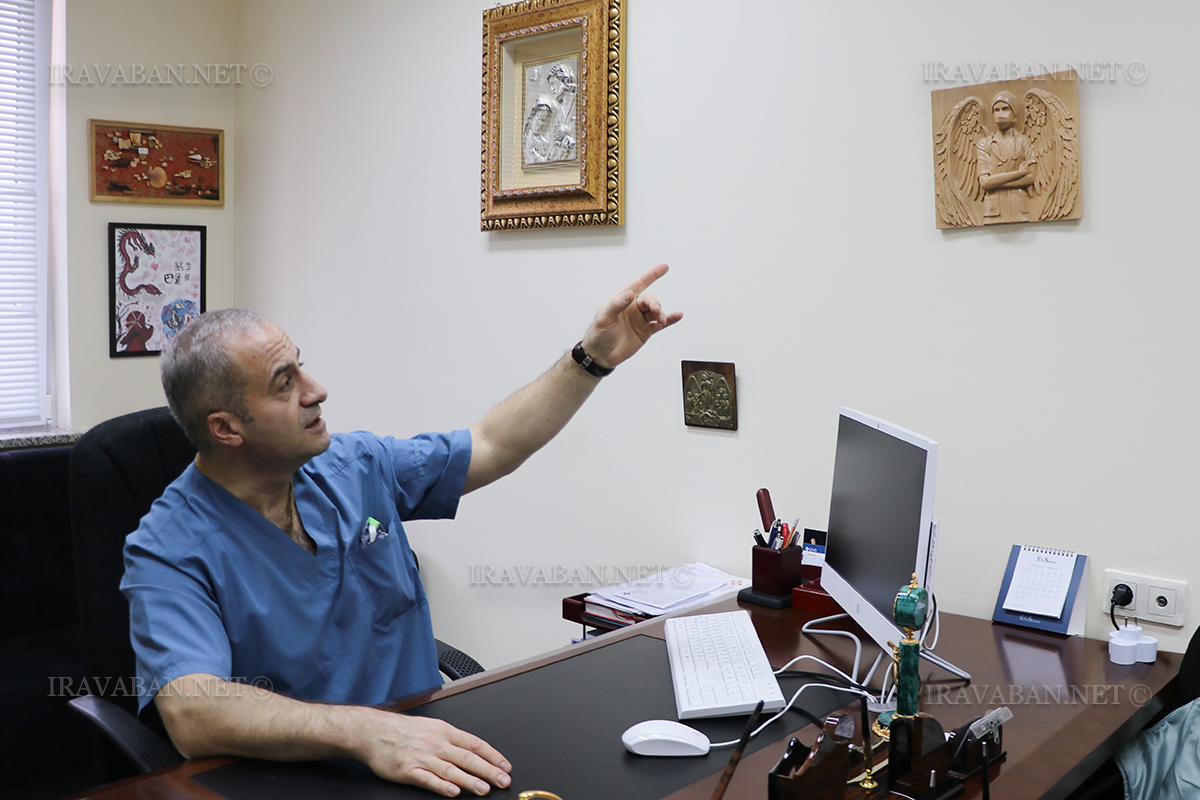“Health should be the highest value in Armenia,” this is the conviction of Professor Khachatur Badalyan, Head of the Chair of Surgical Diseases and Modern Surgical Technologies of the National Institute of Health; Surgeon, Oncologist, Doctor of Medical Sciences, Professor of “Izmirlian” Medical Center.
Iravaban.net talked to the professor about oncology, complex surgeries, public health, palliative care, future opportunities. His patients tell how the doctor helped and saved their lives and the lives of their relatives.
Khachatur Badalyan started his education as a doctor at Yerevan State Medical University, then in 1994 he moved to Moscow, Russia, continuing his education in N.Blokhin Oncology Research Institute, Medical University of Economics. He worked in the field of oncology, performed complex surgeries. Until 2018, he was the chief physician of # 68 hospital in Moscow. After the change of the political situation in Armenia, he moved to Armenia with great objectives.
Khachatur Badalyan about oncology
– You have specialized in the field of oncology, especially in the field of pathologies of the liver and pancreas, to defend the scientific thesis on this topic. What problems do you see in this sphere, what is the main problem that exists in Armenia at the moment?
– It is a very serious pathology. From the first day I worked in the department of liver and pancreatic tumors at the Institute of Oncology, which for me, it can be said, was a case study, there was no such department in Armenia at all. When I was admitted to the clinical residency and I was told that it was possible to get a job in that department, it was a revelation for me.
I have often been invited to Armenia for help, surgery and treatment of different types of patients with different pathologies and mainly patients with liver and pancreatic pathologies. It can be said that the experience I have seen in Moscow is definitely very small in Armenia and there are very few hospitals that deal with these pathologies. Armenia has a lot to do for development.
– Doctors always talk more about prevention than about the treatment itself. How do you assess this as a specialist? You deal with these patients, those who have the problem, every day. When could the citizens, your patients, discover that they could have avoided the worst? What preventive measures should be taken that are not being done now?
– Prevention is a very important stage. Sometimes people take oncology as an accusation for a mistake made by fate, by God, but that approach is wrong. Unfortunately, we do not have a modern approach to both prevention and early detection of oncology and other steps. In my opinion, the primary question is how responsible a person is towards his health. The several stages of that responsibility – the attitude of the person towards his health, the responsible attitude of the primary medical staff to make the correct diagnosis, the second, the third stage, when he goes to inpatient treatment, how responsible the doctor is and shows the right approach to the patient. And it’s a very important question, when a very responsible and heartfelt attitude is given to the patient by relatives. If these stages are done at the right time and correctly, in my opinion, oncology is an easy to treat and overcome diagnosis. I always assess with pain the situations when some of our specialists let the process develop as a result of a wrong professional approach.
After the diagnosis of oncology, it is very common to say that there is no cure and it is unfortunate that people, not having the experience of treating severe cases, are put in a non-surgical, non-medical condition and send people home saying or justifying that there is no need, it is costly ․․․ They do not say that if they do not do it or it is not done here, maybe it is done somewhere else. One should not think that by doing so he is degrading or lowering his professional approach.
– Mr. Badalyan, you also perform complicated, risky surgeries, you save many lives by it. How do you do that? How do you manage to put aside both your human and professional fears when making such decisions?
– Probably, based on life experience, we can say that a certain professional approach is formed over the years, the fear already goes back ․․․ and the aspiration, the desire to help a person at that moment ․․․ I always imagine that I am dealing with the enemy on the battlefield and when there are current difficulties, war, when it is necessary to make a strategic decision, how to approach, what is the weak point of the enemy and that decision is always individual. Unfortunately, there is no correct formulation of the approach in any literature and what should be done to make it all the right way. It is not always possible to get out of those difficult situations with a victory, but I try to do my best to ensure the victory if possible.
Khachatur Badalyan about palliative care
-Unfortunately, but there are often cases when the patient needs palliative care. Please detail a little about palliative care in general and how developed it is in Armenia.
– During the last 6 years I have been engaged in palliative service in Moscow, both in terms of organization and developing separate directions of service. I should say that palliative care has flourished and developed in Russia in recent years. Unfortunately, it has become a common stereotype that oncology patients are always accepted as palliative, but this is not the case. It is accepted in the world that palliative care is aimed at all non-medical or incurable patients, regardless of pathology.
The most incomplete and open part of palliative care is one of its directions – the issue of pain relief. I can say that regardless of the words that say that we have procedures adopted in accordance with European norms and the palliative service is at a very high level ․․․ these are merely slogans. On a daily basis, I saw that patients who needed analgesia did not receive them because doctors were afraid to prescribe adequate analgesia, which required the presence of an oncologist, and the oncologist must prescribe, and which is wrong again.
The social direction is also a notable direction in palliative care, when we reach out to people for help, because after long-term treatments, people are disappointed with both doctors and medicine and are mostly in a very difficult financial situation.
Palliative patients are desperate, frustrated, discouraged patients who have already lost faith in the disease, in life, and it is very difficult to communicate with those patients, to get in touch with those patients. By the way, not all psychologists can provide that direction; they are separate psychologists who deal with palliative patients.
Khachatur Badalyan on public health
– Let’s also talk about the existing problems in the field of public health in Armenia.
– During this time, since I moved to Armenia, I have encountered several important questions. The first is about the quality of the oncology service, because I see many institutions with licenses for cancer treatment that do not have the appropriate professional level. That is, if we do not license the activity or specific areas that require a certain level of knowledge, giving a general license to conduct any treatment, we bring to situation where people, applying to the doctor, do not receive appropriate treatment. Often patients come already rejecting and not assessing the relevant condition correctly, and saying that treatment is not possible. If treatment is not possible, then what will a person do, where to go or go home disappointed, cross his destiny, life, or try to find ways. People trying to find ways, Sometimes they really find it. And it is very sad that in the 21st century, if it is possible to cure any pathology, people get an answer from a doctor, it is not possible. It is wrong, it is a defect in the organization of healthcare. Medicine is not summed up in one person, medicine is a collegial and collective activity.
Khachatur Badalyan’s vision of future
– I know that you have an objective – a dream to establish an international medical center in Armenia. What are your plans, how realistic is this and do you think it is possible that it will be implemented in the near future?
– I see a great future in that direction, because Armenia, having a large number of experienced specialists, but not having properly organized and correct conditions, where those specialists can realize themselves. There is a great future: I imagine that these leading specialists, including our compatriots and specialists from abroad, will create an international center where any patient can come from abroad and be treated here, because it will be much more attractive from the price point of view and also from the regional point of view. In my opinion, these are very perspective conditions for medical tourism. I also consider cooperation with Arab countries possible, because Armenian doctors are highly respected and appreciated by Arabs, and it is easy to leave for Armenia from those countries. They can reach Armenia in a very short time and it is very convenient. Preliminary discussions have led to the conviction that the future for medical tourism is rather large. Currently, there are directions that are developing as well: stomatology, plastic surgery.
I call on the ministry and the officials who can introduce some changes and make changes related to the topics I mentioned, to be more active, to move from words and discussions to action, because now we need to take very important and cornerstone steps in medicine: because medicine needs to be developed, it needs to be promoted, and having the potential in terms of the current doctors, we do not have the appropriate level of medical institutions that can provide medical care appropriate to the 21st century.
I am not disappointed, I have not regretted for returning to Armenia, and I do not want to go back, I am ready to struggle, I am ready to move forward and take every step depending on me and implement the slogan I said, ‘the health Armenian is the highest value in our country’.
Details in the video

